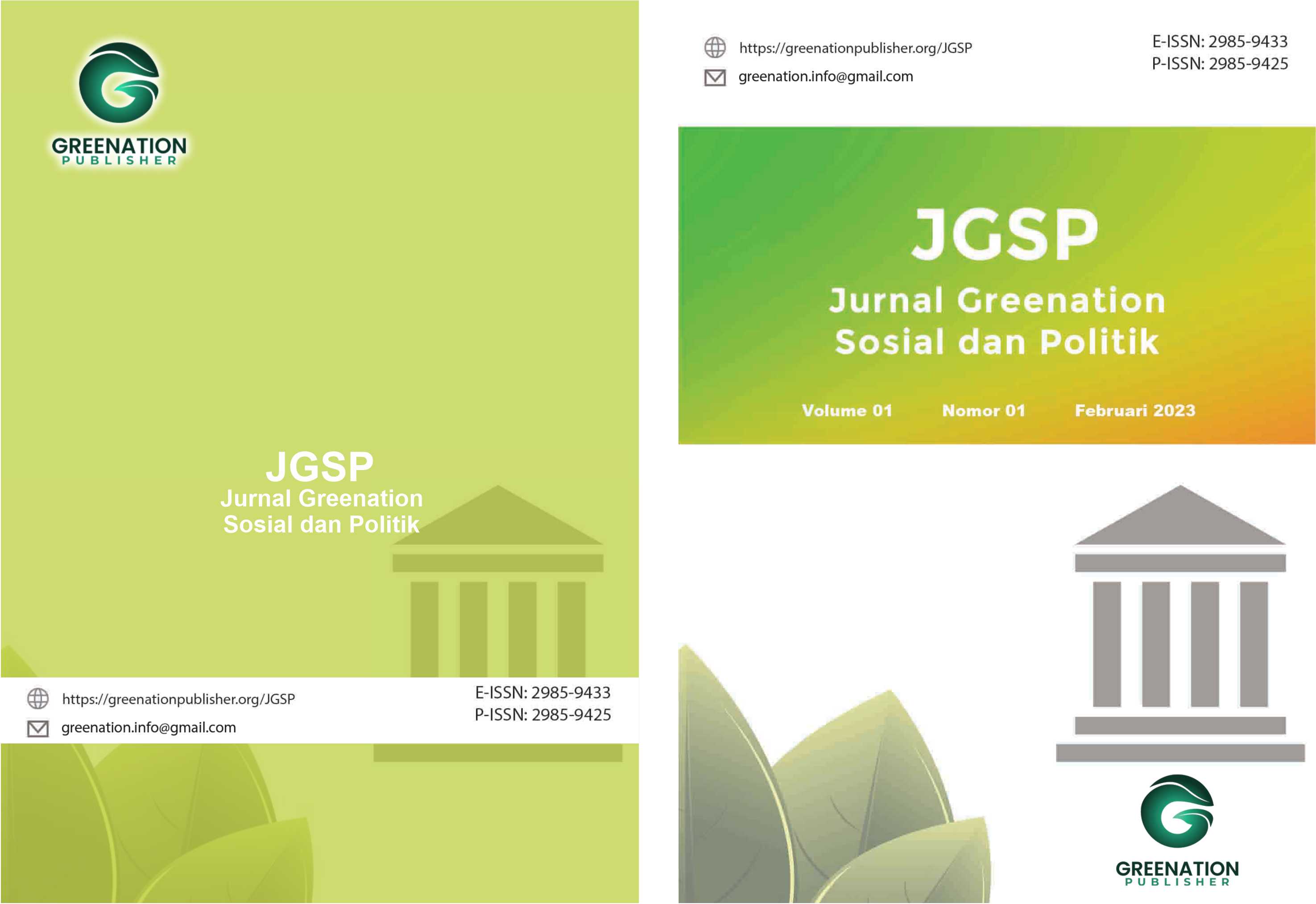Juridical Analysis of the Flexibility in Procurement Procedures For Goods and Services During the Covid-19 Emergency Period From the Perspective of Administrative Law and the Risk of Abuse of Authority
DOI:
https://doi.org/10.38035/jgsp.v3i3.444Keywords:
Emergency Procurement, Administrative Law, Discretion, Abuse of Authority, COVID-19Abstract
The COVID-19 pandemic prompted the government to take swift action in meeting public needs through emergency procurement of goods and services. In such situations, procurement procedures do not follow standard mechanisms, but instead are granted flexibility specifically regulated through instruments such as Presidential Regulation Number 16 of 2018 in conjunction with Presidential Regulation Number 12 of 2021, as well as LKPP Regulation Number 13 of 2018. This study aims to analyze the legality of such procedural flexibility during emergencies from the perspective of administrative law and to examine the potential for abuse of authority that may arise. A normative juridical approach is used to examine the relevance of general principles of good governance (AUPB), such as proportionality, accountability, and transparency, as stipulated in Law Number 30 of 2014 on Government Administration. The analysis reveals that while procedural flexibility in emergency situations is normatively justified, weaknesses in oversight and limited technical guidance open opportunities for irregularities, such as mark-up practices, direct appointments without real needs, and conflicts of interest. The absence of clear limits on discretionary power also poses a risk of abuse of power. Therefore, there is a need to strengthen regulations, enhance the capacity of procurement personnel, and optimize risk-based oversight technologies to ensure accountability at every stage of emergency procurement. This study is expected to contribute to the formulation of more adaptive procurement policies that remain grounded in the principles of administrative law, ensuring justice and legal certainty.
References
Ampow, G. M. (2021). Penerapan Diskresi oleh Presiden Atas Kebijakan Keuangan Negara Dalam Penanganan Pandemi Covid-19 Melalui Peraturan Pemerintah Pengganti Undang-Undang Nomor 1 Tahun 2020. LEX ADMINISTRATUM, 9(3).
Antari, V. A. (2023). Penerapan Diskresi Pejabat Fungsional Pengelola Pengadaan Barang/Jasa Dalam Penyelenggaraan Pengadaan Barang/Jasa Pemerintah. Jurnal HUKUM BISNIS, 7(1), 981-991.
AR, H. K. (2024). Diskresi Yang Menjadi Objek Sengketa Tata Usaha Negara Berdasarkan Undang-Undang Nomor 30 Tahun 2014 Tentang Administrasi Pemerintahan. Journal of Lex Theory (JLT), 5(1), 90-106.
Arifin, F. &. (2024). Rekonsseptualisasi Diskresi Perspektif Hukum Administrasi Negara: Analisis Kritis Terhadap Implementasi Undang-Undang Administrasi Pemerintahan. Proceeding APHTN-HAN, 2(1), 115-148.
Fahruddin, M. (2023). Penegakan Hukum Dalam Pengadaan Barang/Jasa Pemerintah Menurut Perpres Peraturan Presiden Nomor 12 Tahun 2021 Tentang Perubahan Atas Peraturan Presiden Nomor 16 Tahun 2018 Tentang Pengadaan Barang/Jasa Pemerintah.(Studi Kasus Putusan Pttun Surabaya Nomo. VERITAS, 9(1), 137-150.
Hente, J. (2024). Kewenangan Pengadilan Tata Usaha Negara dalam Menguji Unsur Penyalahgunaan Wewenang Pejabat Negara. Jurnal Tana Mana, 5(3), 430-440.
Ibrahim, A. S. (2025). ANALISIS YURIDIS TERHADAP PENYALAHGUNAAN WEWENANG DALAM ADMINISTRASI PEMERINTAHAN: TINJAUAN BERDASARKAN UNDANG-UNDANG NO. 30 TAHUN 2014 TENTANG ADMINISTRASI PEMERINTAHAN. JURNAL RECTUM: Tinjauan Yuridis Penanganan Tindak Pidana, 7(1), 116-125.
Irham, M. S. (2023). Penerapan Prinsip Legalitas, Yuridikitas, Dan Diskresi Dalam Penyelenggaraan Pemerintahan Di Indonesia Guna Mengukuhkan Tata Kelola Yang Berkeadilan. Didaktik: Jurnal Ilmiah PGSD STKIP Subang, 9(5), 3683-3696.
Kurniawan, I. (2023). Tanggung Jawab Pejabat Pemerintah Dalam Menerapkan Diskresi Menurut Undang-Undang Nomor 30 Tahun 2014 Tentang Administrasi Pemerintahan. Grondwet, 2(2), 251-264.
Kusuma, M. H. (2024). Strategi peningkatan kapabilitas APIP untuk optimalisasi pencegahan korupsi di Indonesia. Jurnalku, 4(4), 433-446.
Maisari, R. (2024). Pertanggungjawaban Pemerintah Terkait Pengelolaan Keuangan Negara Dalam Penyediaan Barang dan Jasa di Masa Covid-19. Lex Renaissance, 9(2), 282-308.
Pambudi, A. S. (2023). Respons kebijakan pemerintah daerah dalam pemanfaatan anggaran DID pada periode awal pandemi COVID-19. Jurnal Kebijakan Pembangunan Daerah, 7(1), 48-67.
Qamar, N. &. (2023). Wewenang Sebagai Instrumen Penyelenggararaan Pemerintahan Dalam Sistem Negara Hukum. Asas Wa Tandhim: Jurnal Hukum, Pendidikan Dan Sosial Keagamaan, 2(2), 201-222.
Rayhan, A. J. (2023). Penyelesaian Sengketa Tata Usaha Negara: Obyek Sengketa Negatif dan Penerapan Asas-Asas Umum Pemerintahan Yang Baik. Yustisia Tirtayasa: Jurnal Tugas Akhir, 3(3), 342-360.
Resmadiktia, N. M. (2023). Pertanggungjawaban Pemerintah dalam Mewujudkan Good Governance sesuai Hukum Administrasi Negara. Jurnal Ilmiah Wahana Pendidikan, 9(11), 685-697.
Romli, R. H. (2021). Analisis Realokasi Anggaran Sebagai Solusi Penanganan Covid-19 dan Dampaknya Terhadap Mekanisme Pengadaan Barang/Jasa. Indonesian Accounting Research Journal, 1(3), 431-438.
Syafril, R. E. (2023). Analisis Wewenang Pemerintah dalam Kuasa Diskresi Administrasi. JESS (Journal of Education on Social Science), 7(2), 219-228.
Taufiqurrahman, M. (2024). Kebijakan Diskresi Pejabat Pemerintahan Dalam Memutuskan Kebijakan Publik. Iuris Studia: Jurnal Kajian Hukum, 5(3), 776-771.
Tjoanda, M. (2020). Kekuatan Mengikat Surat Penunjukan Penyedia Barang dan Jasa Pemerintah dalam Kontrak Pengadaan Barang/Jasa Pemerintah di Masa Pandemi Covid-19. Sasi, 26(3), 403-414.
Yogopriyatno, J. &. (2024). Perbandingan Ilmu Administrasi Publik. Indramayu: PT Adab Indonesia.
Downloads
Published
How to Cite
Issue
Section
License
Copyright (c) 2025 Gidion Karo Sekali, Joko Setiono, Albertus Wahyu Rudhanto

This work is licensed under a Creative Commons Attribution 4.0 International License.
Hak cipta :
Penulis yang mempublikasikan manuskripnya di jurnal ini menyetujui ketentuan berikut:
- Hak cipta pada setiap artikel adalah milik penulis.
- Penulis mengakui bahwa Jurnal Greenation Sosial dan Politik (JGSP) berhak menjadi yang pertama menerbitkan dengan lisensi Creative Commons Attribution 4.0 International (Attribution 4.0 International CC BY 4.0) .
- Penulis dapat mengirimkan artikel secara terpisah, mengatur distribusi non-eksklusif manuskrip yang telah diterbitkan dalam jurnal ini ke versi lain (misalnya, dikirim ke repositori institusi penulis, publikasi ke dalam buku, dll.), dengan mengakui bahwa manuskrip telah diterbitkan pertama kali di JGSP.
























